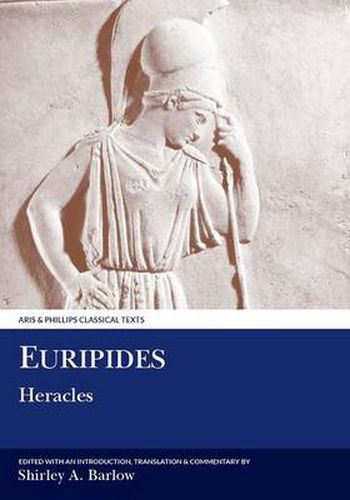Readings Newsletter
Become a Readings Member to make your shopping experience even easier.
Sign in or sign up for free!
You’re not far away from qualifying for FREE standard shipping within Australia
You’ve qualified for FREE standard shipping within Australia
The cart is loading…






Euripides in this interesting play of his middle period takes as his subject the figure of Heracles and uses it to explore the contrast between his glamorous heroic image, so well known in myth, and the ugly reality of domestic violence involving the less well known story of the murder of his wife and children. In treating this act the dramatist explores the boundaries of madness and Heracles’ painful emergence from this state to a bitter realisation of what he has done. A further contrast is drawn between the callous gods who cause the madness and the caring and loving support of human friends and remaining family. (Theseus and Amphitryon).This edition attempts to bring out the human and psychological qualities in the play and to defend its structure and dramatic power, arguing that it is neither a grotesque abortion (Swinburne) nor broken-backed (Murray) but a coherent and exciting work.
$9.00 standard shipping within Australia
FREE standard shipping within Australia for orders over $100.00
Express & International shipping calculated at checkout
Euripides in this interesting play of his middle period takes as his subject the figure of Heracles and uses it to explore the contrast between his glamorous heroic image, so well known in myth, and the ugly reality of domestic violence involving the less well known story of the murder of his wife and children. In treating this act the dramatist explores the boundaries of madness and Heracles’ painful emergence from this state to a bitter realisation of what he has done. A further contrast is drawn between the callous gods who cause the madness and the caring and loving support of human friends and remaining family. (Theseus and Amphitryon).This edition attempts to bring out the human and psychological qualities in the play and to defend its structure and dramatic power, arguing that it is neither a grotesque abortion (Swinburne) nor broken-backed (Murray) but a coherent and exciting work.